International Heritage Centre blog
Paul O'Grady and The Salvation Army in Merseyside
Paul O'Grady and The Salvation Army in Merseyside
In episode one of The Sally Army and Me Paul O’Grady reminisced about the many times he has crossed paths with The Salvation Army in the course of his life. We were eager to hear all his recollections because it meant that when he came to visit the Heritage Centre, we could show him material from the archives that would help bring the memories back all the more vividly. For Paul, seeing the Salvation Army band playing outside Woolworths at Christmas stoked a life-long ambition to play the drum for the band. While it wasn’t in our power to fulfil that ambition – that would depend on him passing his training – we were able to show him photographs of the musicians he saw as a child.
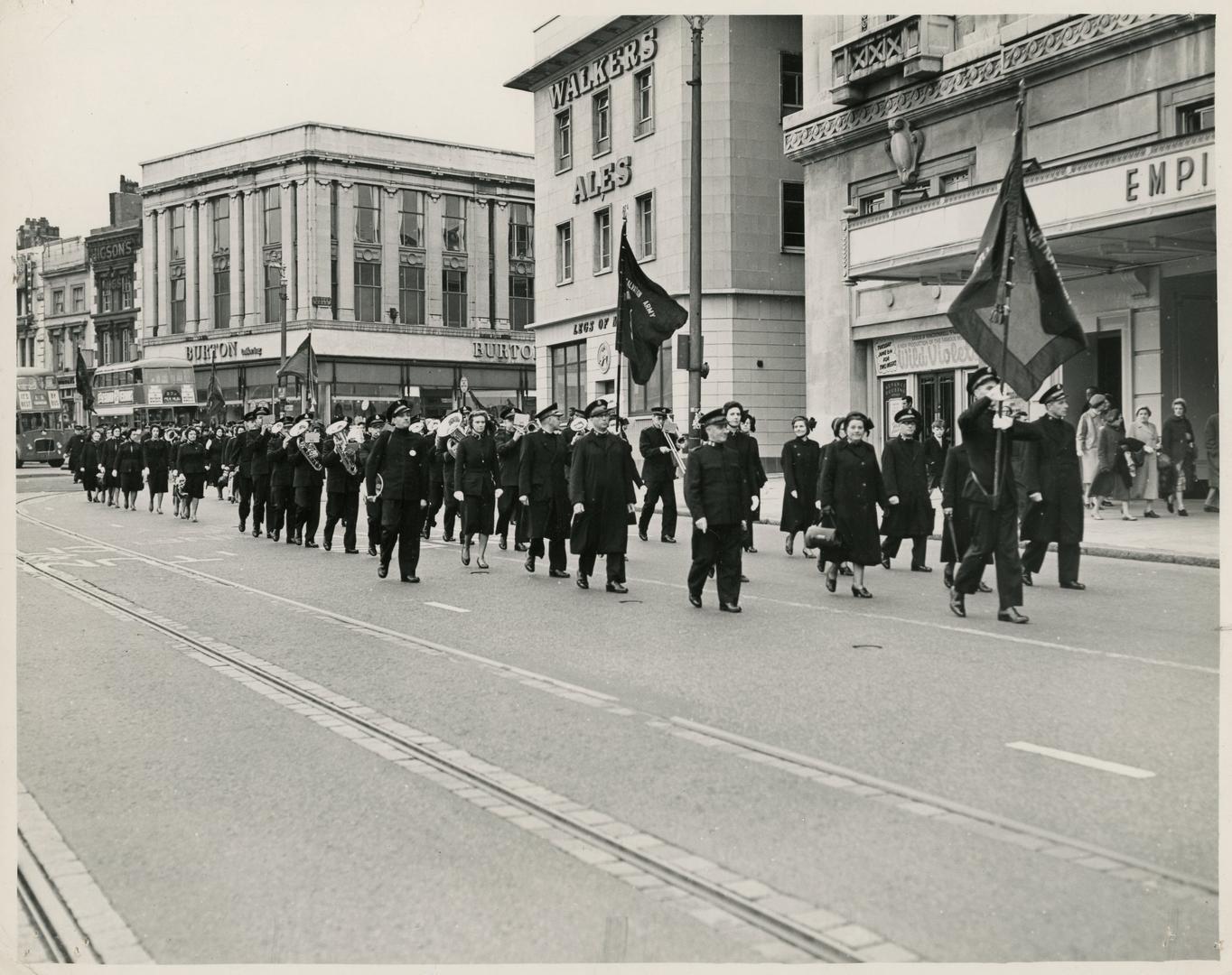
This is Toxteth Band marching past the Empire Theatre in Liverpool’s Lime Street in 1961. All the other buildings in the scene are gone today. Paul grew up in Birkenhead, just across the Mersey from Liverpool, so we also tracked down an article about Birkenhead Songster Brigade. Traditionally, women didn’t play in Salvation Army brass bands, but they could take part in Songster Brigades which are mixed singing groups. In 1958, the Birkenhead Songsters were presented with an organ to honour their hard work, which had included a recent evangelistic campaign at the local Men’s Social Work hostel.
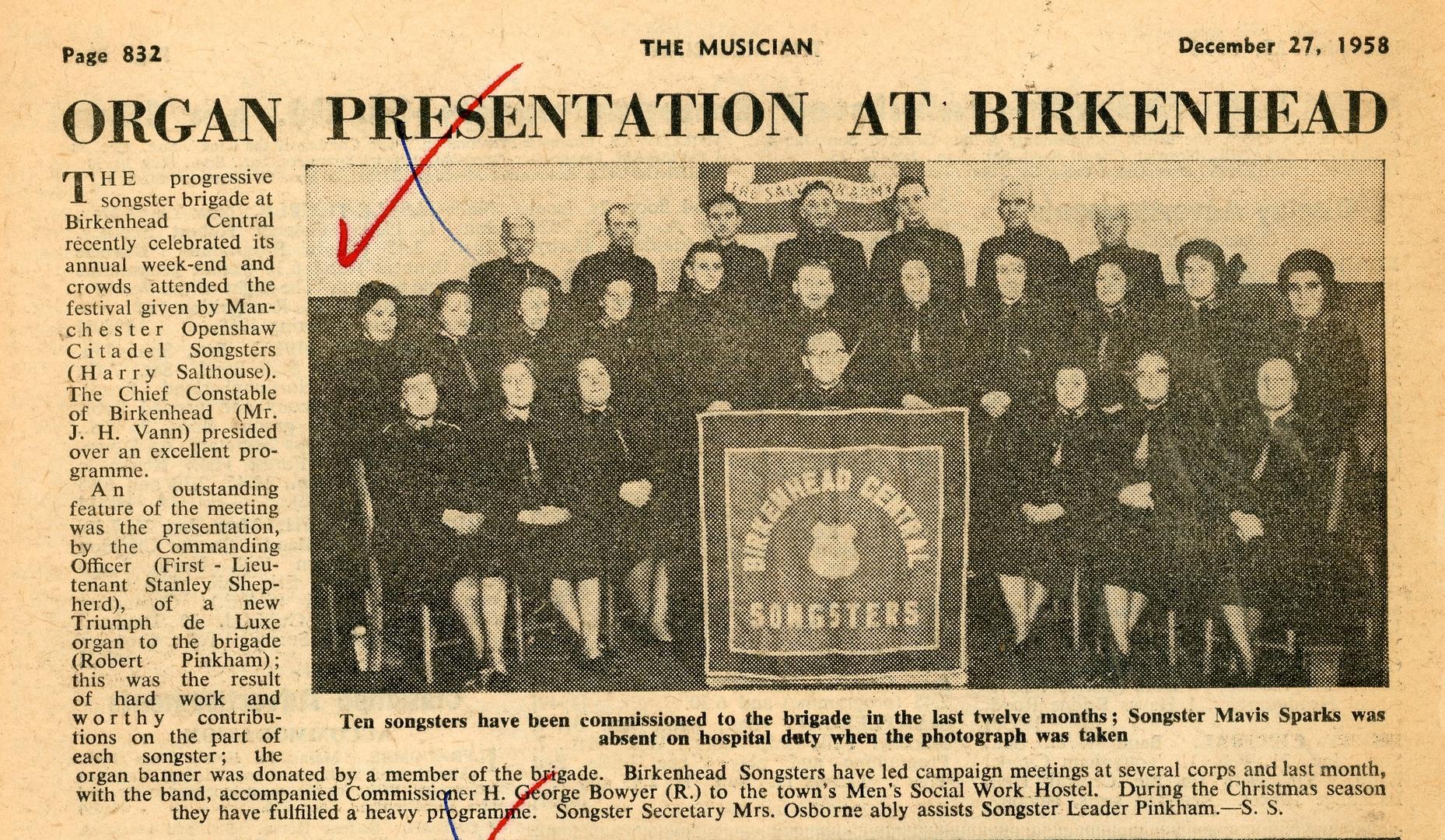
The hostel in Birkenhead was on Price Street and closed in 1967. We didn’t have any photographs of the hostel from the days of Paul’s childhood, but he still enjoyed seeing this photograph of Price Street from before his time.
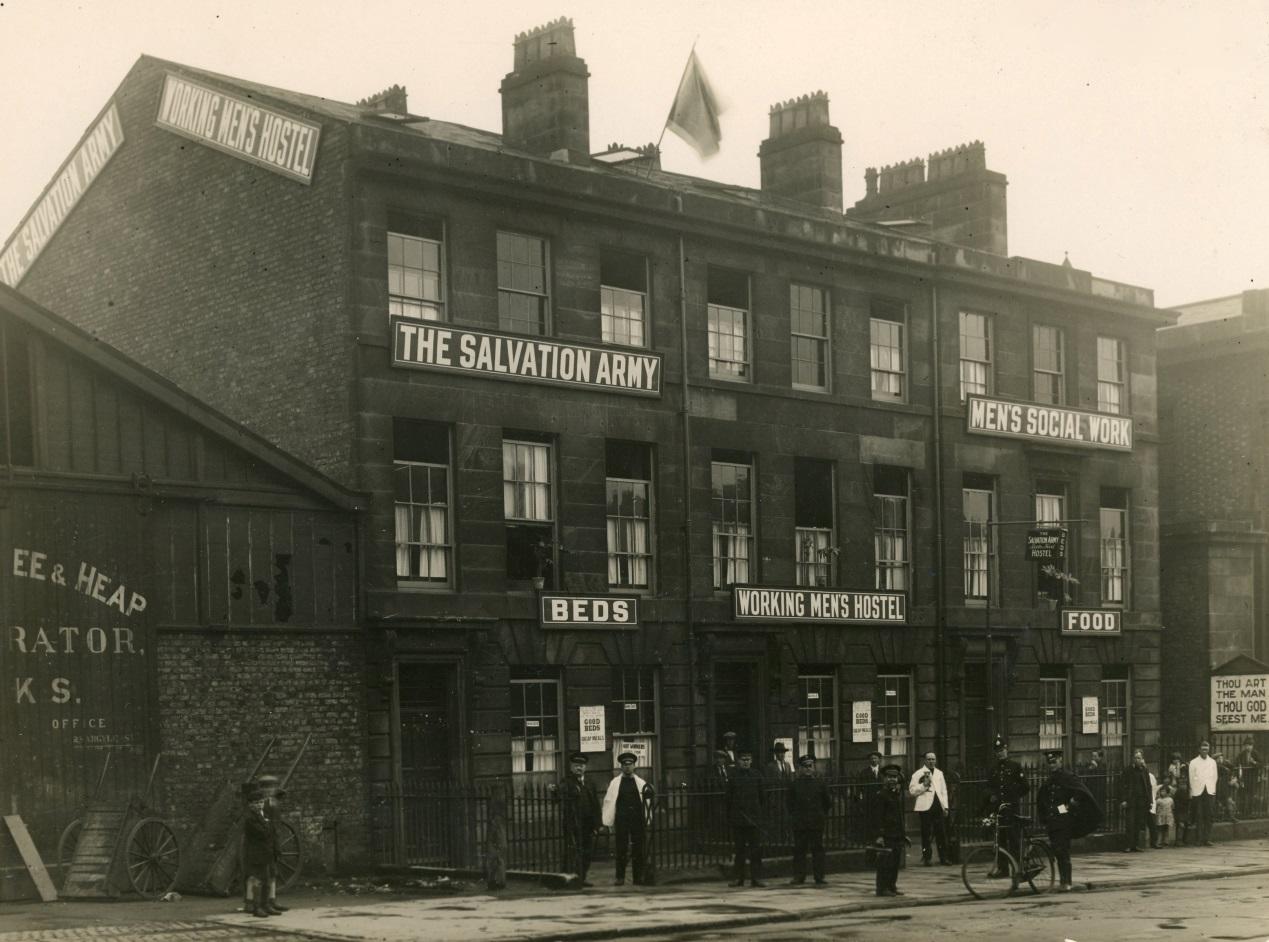
However, Paul was more familiar with another working men’s hostel. As a teenager, he used to volunteer at 10 Norton Street in Liverpool. Norton Street opened in 1922 and closed in 1975. As well as being hostel, Norton Street had a public restaurant and an employment bureau.
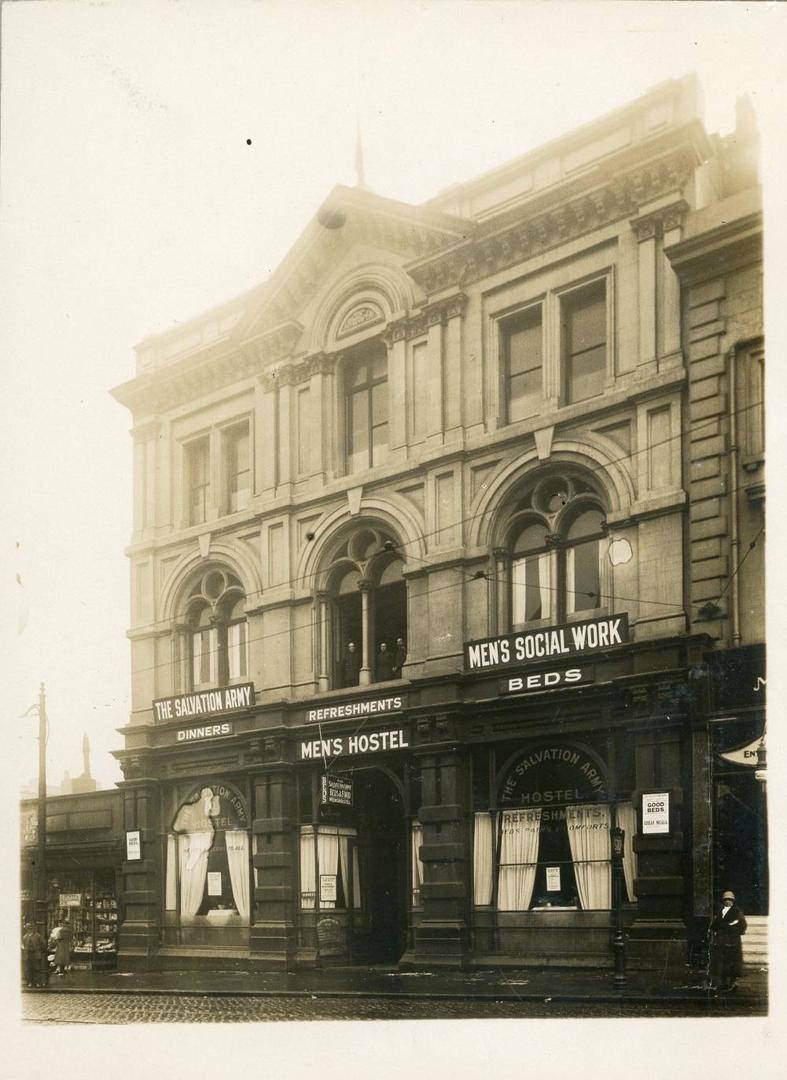
We showed Paul this photograph and the floor plan of Norton Street below. We discovered this plan in a property ledger that was kept by the Men’s Social Work Headquarters. Paul told us about a rather unusual feature of Norton Street hostel that we hadn’t initially noticed on the plan – a well!
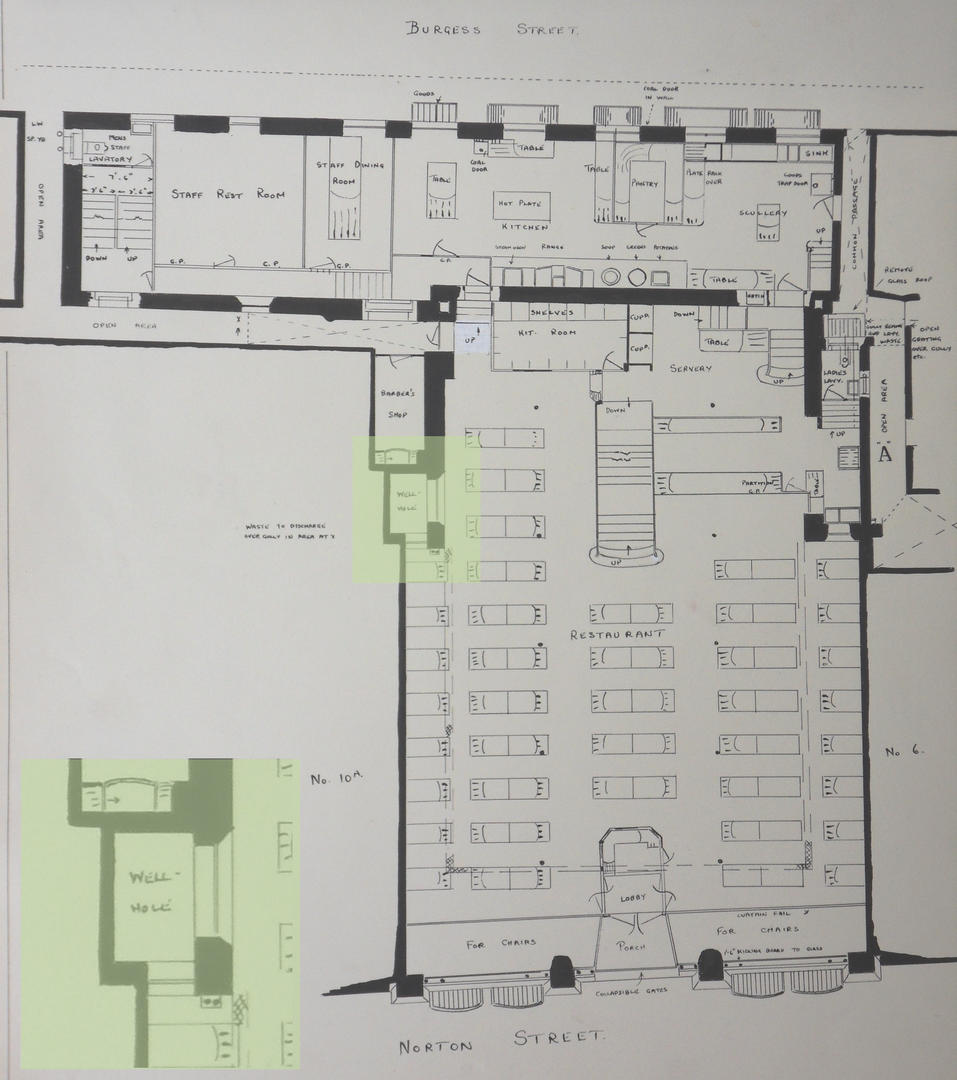
Paul was also fascinated to hear about the experiences of the Salvation Army officers who pioneered work in Birkenhead in the 1880s. Their success seems to have been quite mixed. The first Birkenhead corps was opened in 1881 and was apparently an immediate hit, while the second, opened in 1882, was not so readily accepted.
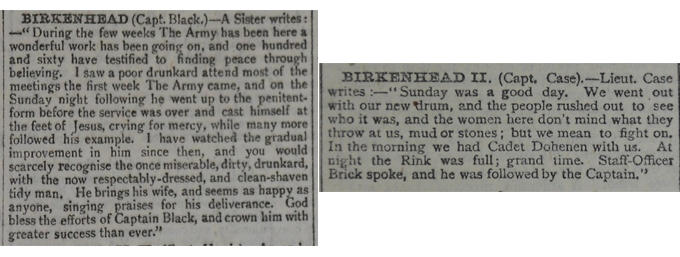
Paul was amused by the methods The Salvation Army adopted to attract people to its meetings in the early days. The use of military metaphor was much more extensive in the early days of ‘The Army’ than it is today: beginning work in a town was called ‘opening fire’, while crying ‘Hallelujah!’, as Paul is fond of doing, was called ‘firing a volley’. This 1888 handbill from Birkenhead II corps that we showed Paul gives some more examples but even we’re not sure what these mean: ‘Sword sharpening’? ‘Examining Guns’?
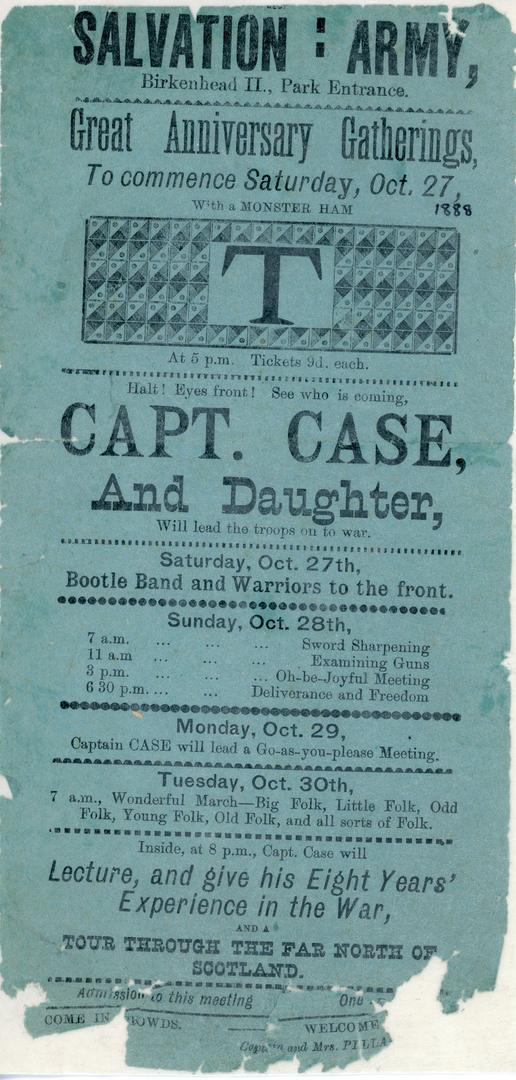
Appealing to people’s stomachs with the promise of a ‘monster ham’ was another common tactic, but Paul’s personal favourite was the use of circus and music hall style advertising to draw people in. The early Salvation Army considered these forms of popular entertainment unedifying but was not averse to appropriating the music and spectacle of these venues for its own ends. The organisation actually went further, ‘capturing’ some theatres and public houses and converting them into religious meeting halls. This innovative approach earned The Salvation Army an interesting reputation in Victorian Britain, as is illustrated by the satirical cartoon below, which also gently pokes fun at The Army’s acceptance of female ministry.
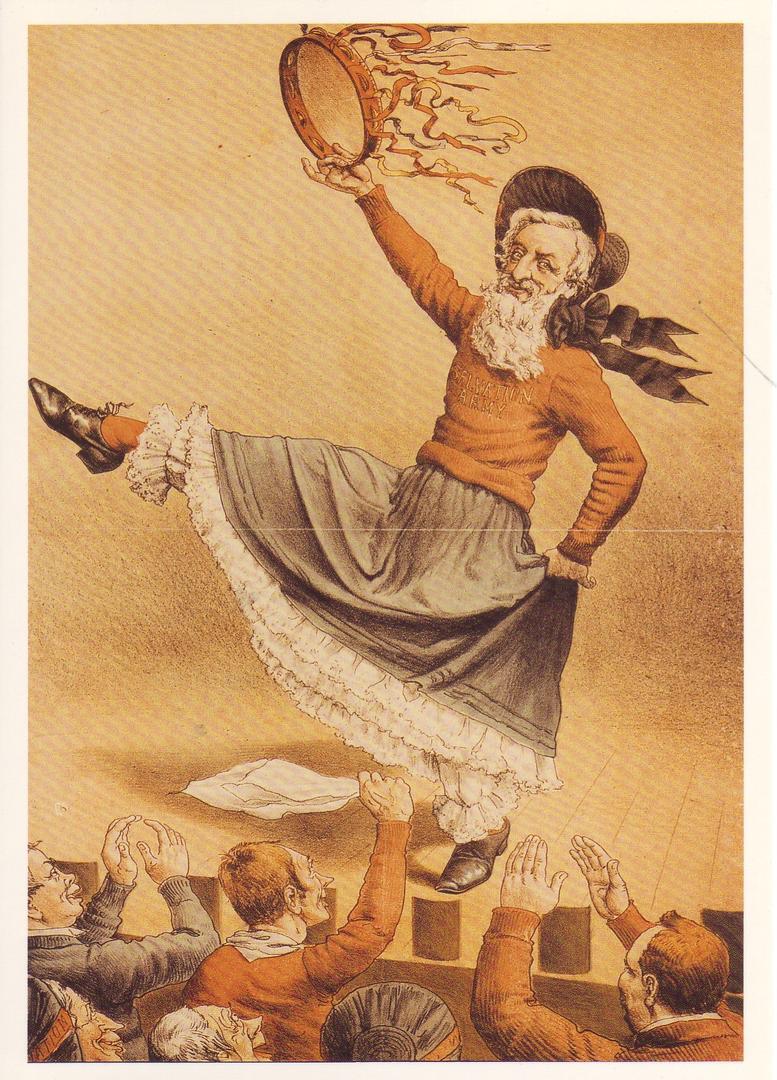
When reading the Birkenhead handbill Paul was particularly taken with the line: ‘Wonderful March – Big Folk, Little Folk, Odd Folk, Young Folk, Old Folk, and all sorts of Folk.’ He aptly observed: ‘That’s the essence of The Salvation Army right there. They don’t judge, they’re accepting of everyone – even me!’
Ruth
April 2016
Read other blogs from the Heritage Centre
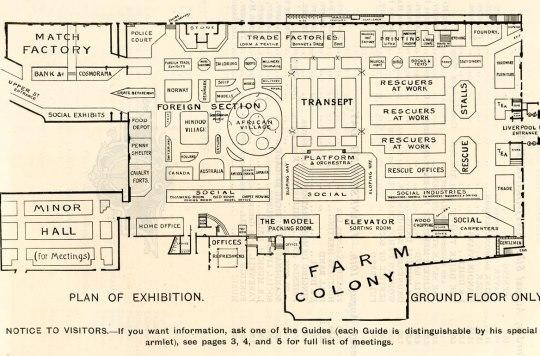
A contextual complexity: the Special Efforts Department
Exploring the work of a department for which no administrative papers have survived...
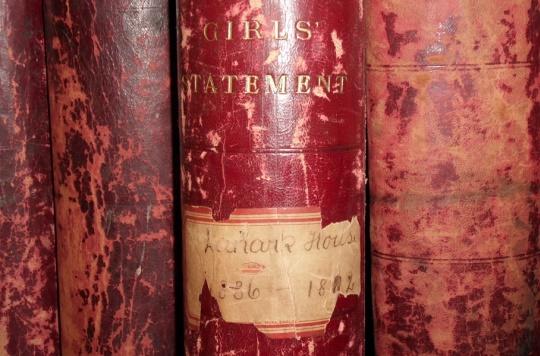
A lesson in judging books by their covers
Looking at the above picture you’d be forgiven for thinking that the volume in the centre would be easy to describe in our archive catalogue...
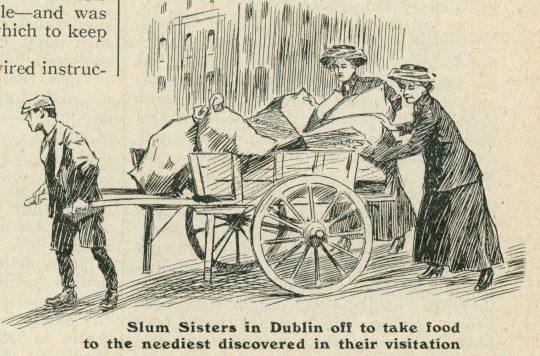
“Almost demented with hunger and fear:” Easter 1916
The events of the Easter Rising against British rule in Ireland were widely covered in the British press, and the periodicals of The Salvation Army prove to be no exception...
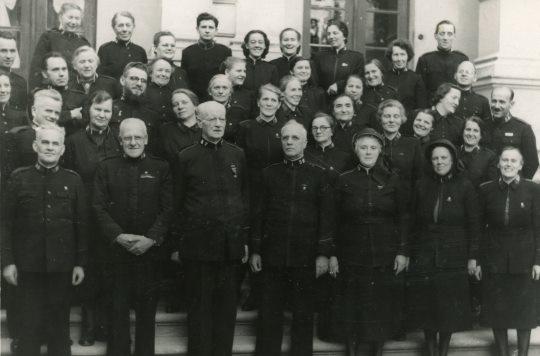
From bad to worse: The Salvation Army in communist Czechoslovakia
Papers from our archive detail the problems The Salvation Army experienced following the nationalisation of churches in Czechoslovakia in 1949 ...